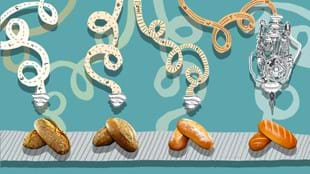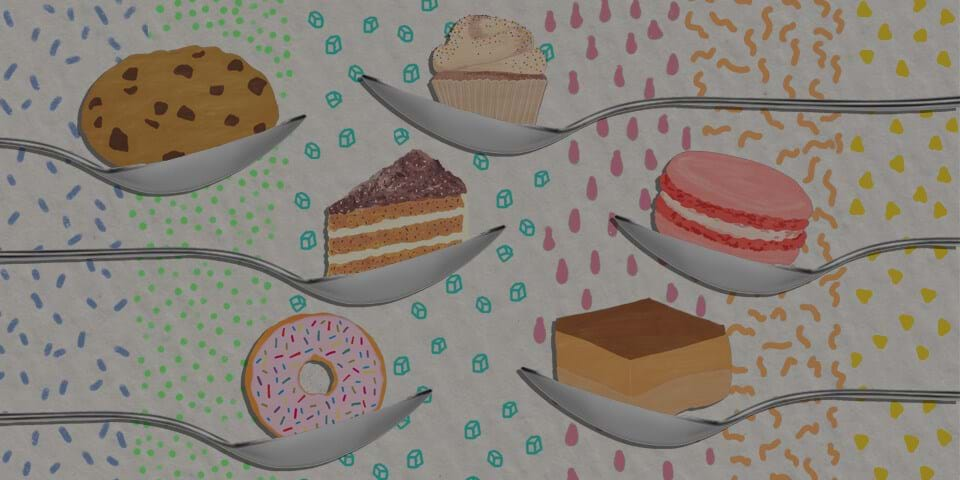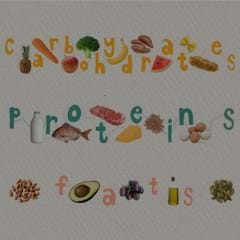Are you someone who limits how much bread you eat? If you do, you’re not alone. Gluten has increasingly been identified as one of the foods to be eliminated if we want to be truly healthy – whether it’s to address a specific health condition or simply to feel better.
But it’s been observed that some people who avoid gluten don’t really even understand what it is, such is the widespread belief that gluten is simply “bad”.
For the record, gluten is a protein found in wheat, barley, rye and some other grains. For most people it’s not a problem to eat foods containing gluten. For others, it can cause problems ranging from wheat allergy and coeliac disease to less specific intolerance-type symptoms.
There’s much debate about why gluten seems to have become more of a problem in recent years. One of the widely accepted theories is that, because modern wheat has been selectively bred to contain higher gluten content than in the wheat of the past, more of us are having problems with gluten intolerance and coeliac disease.
Wheat was first domesticated 10,000 years ago, and humans have been experimenting with the best ways to grow it ever since. In the past century or so, the agricultural industry has been breeding wheat that works better in modern processed foods. One argument is that our bread has consequently become less healthy than the lovely loaves our grandparents and great-grandparents ate.
It turns out, based on the latest research, that this is probably not the case. A study recently published in Food Chemistry has found that modern wheat is no higher in coeliac-inducing factors than historical wheat – the proteins that cause problems were present in wheat 100 years ago, just as they are today.
Researchers behind a 2013 study published in the Journal of Agricultural and Food Chemistry concluded they had “not found clear evidence of an increase in the gluten content of wheat in the United States during the 20th century, and if there has indeed been an increase in coeliac disease … wheat breeding for higher gluten content does not seem to be the basis.”
We can assume this also applies to other parts of the world where wheat is grown. So why are we seeing a worldwide increase in coeliac disease and other forms of wheat intolerance?
The author of the 2013 article hypothesized that it could be down to an increase in consumption of gluten overall. Because gluten itself is often used as an additive, quite apart from wheat, humans are on the whole consuming more of it. The increased consumption of processed foods – many made from refined wheat flour – has contributed to this.
It could be that, at some point, the amount of gluten in the diet tips the immune system into a reaction – although the theory needs more study.
There has also been an increase in people apparently reacting to gluten without having coeliac disease. Scientists and doctors have been divided about why this is. Some say it’s a condition known as non-coeliac gluten sensitivity (NCGS); people with NCGS feel better when they avoid gluten, even though they don’t have the immune-system-related coeliac disease.
Another possibility is that sufferers are in fact reacting to other compounds in wheat, not gluten. Known as FODMAPS, these are types of carbohydrate that are poorly digested by some people, causing symptoms of irritable bowel syndrome (IBS). For these people, avoiding all wheat might not be necessary, but they will feel better when wheat, alongside quite a few other foods, are limited. It’s an area of much study and innovation; there are even low-FODMAP food products emerging in supermarkets around the world.
A related theory is that sourdough bread is more “digestible” than regular bread. There is some basis for this. Traditionally-made sourdough bread is fermented for many hours and uses wild yeast from the local environment, rather than added quick-rising commercial yeast. This long fermentation allows for bacteria to degrade some of the potentially-harmful gluten proteins, making it easier to digest.
There has been surprisingly little research on this, although one small study 15 years ago found a specially-made sourdough bread to be tolerated by its trial coeliac patients. Scientists are cautious about this, however. People with coeliac disease still definitely need to avoid all wheat-containing foods, fermented or not.
Sourdough could be useful for those who don’t have coeliac disease but who do have NCGS or IBS. Head to a bakery or make your own – but make sure it’s from a proper sourdough starter; supermarket sourdough is often just sourdough flavored, and unlikely to be the real thing.

Niki Bezzant is a New Zealand-based food writer, editor and commentator. She is the founding editor (now editor-at-large) of Healthy Food Guide magazine, and is currently president of Food Writers New Zealand and a proud ambassador for the Garden to Table program which helps children learn how to grow, cook and share food. She is a member of the Council of Directors for the True Health Initiative, a global coalition of health professionals dedicated to sharing a science-based message of what we know for sure about lifestyle and health.
If you want more health and fitness inspiration simply sign up to Fit Planet and get the freshest insights and advice straight to your inbox.








